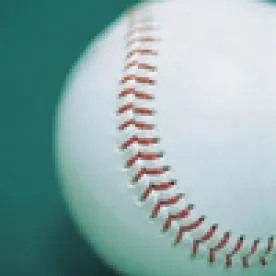In a recent opinion in a patent infringement case concerning a baseball pitching simulator, Judge Vanessa Bryant in the District of Connecticut issued an order to administratively close the case, pending further damages discovery. The discovery was needed because the plaintiff ProBatter apparently disclosed a new damages theory late in the case, just months before trial. The court considered whether to exclude all damages evidence and argument given ProBatter’s discovery disclosure failure, but in weighing the draconian impact of such a measure on ProBatter, the court instead ordered more discovery.
ProBatter filed its complaint for patent infringement against defendant Sport Tutor in December 2005. In May 2008, ProBatter disclosed lost profits as its theory for calculating patent damages. The case had been pending for almost a decade, when in February 2015, in its proposed findings of fact and conclusions of law before trial, ProBatter apparently proposed for the first time that it was entitled to reasonable royalty damages, a different damages theory.
Sports Tutor moved to exclude at trial all evidence on damages, reasoning that ProBatter had not disclosed its reasonable royalty damages theory, and so Sports Tutor was not accorded the proper discovery on this theory during the discovery period of the case. ProBatter’s opposition argued that Sports Tutor never provided its sales information, and so it was prevented from disclosing its calculation of damages. However, ProBatter never filed a motion to compel Sports Tutor’s sales information.
In determining whether all evidence or argument on damages should be excluded, the court first concluded that ProBatter violated its discovery obligations. The court stated that after nearly seven years from its initial disclosure which used a lost profits theory of damages, and less than two months before the trial, ProBatter untimely disclosed reasonable royalty as the measure of damages. Therefore, the court held, ProBatter failed to comply with its duty to correct and supplement its initial disclosure.
The court also determined that these errors made by ProBatter were not harmless. ProBatter, the party which bears the burden of production and proof on damages, did not use the appropriate discovery tools to obtain the sales information from Sports Tutor, the court reasoned. During its many opportunities in its court motions and status conferences, ProBatter neglected to raise the issue of damages discovery. According to the court, ProBatter’s error forced Sports Tutor to put together a defense strategy without enough opportunity for discovery.
Notwithstanding the above, the Court decided that it would not impose the drastic sanction of excluding all evidence and argument on damages. The Court explained that such a sanction would be too severe as it would deprive a litigant of recovering millions of dollars in damages. The Court therefore concluded that justice would be better served by granting Sports Tutor an additional two months to conduct damages discovery.
The case is ProBatter Sports, LLC v. Sports Tutor, Inc., Civil Action No. 3:05-cv-01975, before Hon. Vanessa L. Bryant. A copy of the order can be found here.



 />i
/>i

